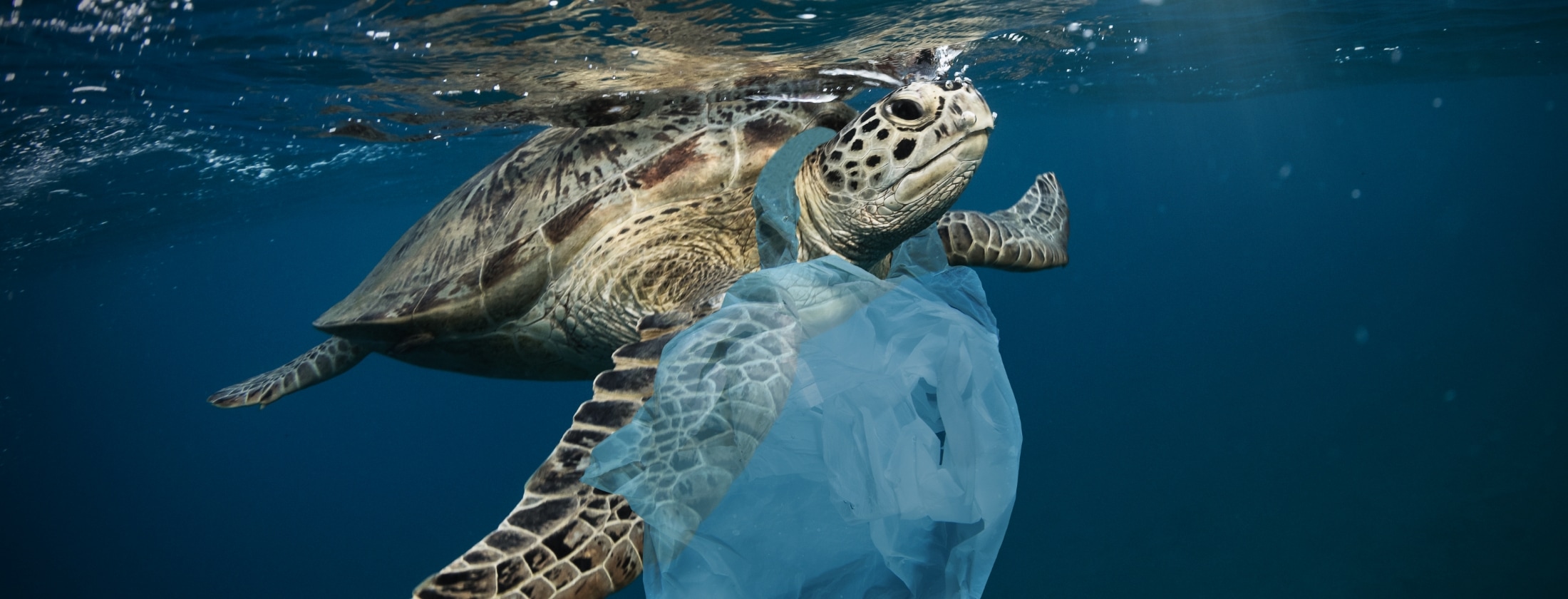Marine Plastic Waste Problem
The marine plastic waste problem refers to the problem of plastic waste discharged by human activities that ends up in the ocean and affects the environment and ecosystems. Plastic waste discharged into the natural environment is eventually carried to the sea by wind, rain, and rivers, and this waste is scattered in various places; it washes up on beaches, floats in the sea, or is deposited on the sea floor. The amount of plastic waste discharged into the ocean keeps increasing because it does not decompose naturally.

Beyond this, the problem caused by plastic waste of particularly minute size is known as the microplastic waste problem, which causes concerning issues such as ingestion by marine organisms. Microplastic debris is believed to be caused by the releaseed fragments of synthetic fibers from clothing in the course of laundry, plastic particulate from makeup in face washing and other various plastic pieces that are washed away. In addition larger marine plastic debris are broken into tiny fragments by the physical effects of waves and ultraviolet rays.
To solve this marine plastic waste problem, it is first important to comprehensively manage waste through the 3Rs (Reduce, Reuse, Recycle). However, managing all waste, including microplastics, is difficult and it is simply not possible to reduce the risk of its discharge into the natural environment to zero. Therefore, there is a need for alternative materials that do not linger as waste and have little impact on the environment even if they are released into the ocean.
KH Neochem’s Solution Technology
The marine biodegradable polymers we have developed are able to be decomposed into carbon dioxide and water by the action of microorganisms present in the ocean. Therefore, even if discharged into the ocean, they do not remain in the ocean as plastic waste. Our marine biodegradable polymers are also made from natural plant-derived raw materials, which has been shown to pose little risk to climate change.

Our marine biodegradable polymers have not only marine degradable, but also offer highly practicality. As it is a thermoplastic resin, it is easy to process, and we expect it to be used in diverse forms, such as film products used in the natural environment, fine particles blended into cosmetics, and more.
